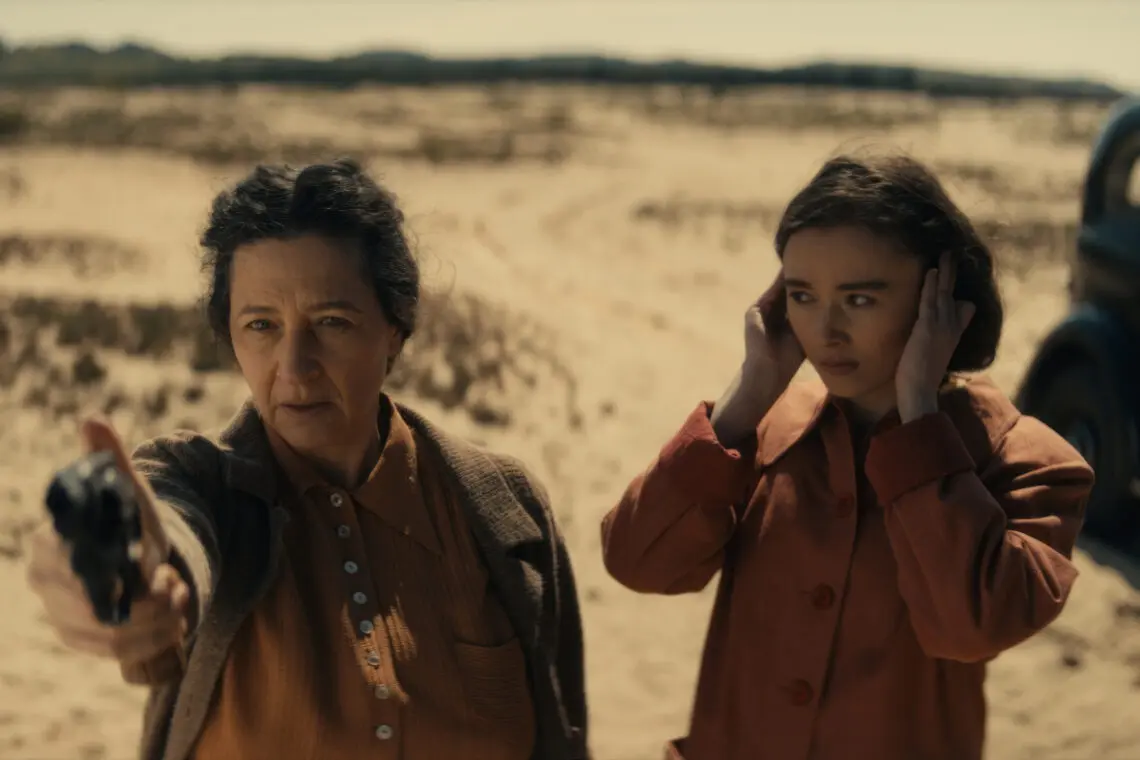Pioneering historical narratives in ‘A World Divided’
Polish director Olga Chajdas continues her remarkable journey in filmmaking, building on the success of Netflix’s “1983”, HBO’s “The Border”, and critically acclaimed features like “Nina” and “Imago”. Her latest venture, the six-episode historical drama “A World Divided”, promises to deliver a unique and compelling narrative.
Balancing fiction and history
Olga Chajdas remains committed to originality. As she put it, “A long time ago, I promised myself I wouldn’t repeat myself, ever.” This ethos drives her to embrace fiction’s intriguing possibilities, steering clear of traditional documentaries about World War II. Instead, she delves into the lives of real people, balancing fame and obscurity, to reflect their experiences during pivotal historical moments.
Co-directing with Frank Devos, the duo employed a strategic approach in character development. Chajdas focuses on women, while Devos concentrates on men—each director drawing from their distinct styles. Devos is meticulous with facts, having read extensively on the subject matter. Chajdas, in contrast, follows her intuition and emotional instincts, resulting in a dynamic and balanced storytelling method.
A global tapestry of narratives
“A World Divided” spans decades and continents, weaving stories from Germany, Israel, France, the United States, and the USSR. As World War II unfolds, six individuals must confront their own conflicts and decisions:
- Wernher von Braun, a German rocket engineer.
- Hedwig Höss, wife of the Auschwitz commandant Rudolf Höss.
- Joan Hinton, a nuclear physicist who worked on the Manhattan Project.
- Frantz Fanon, a soldier-turn-psychiatrist and philosopher.
- Nikita Khrushchev.
- Golda Meir.
These characters, played by Max Wagner, Lara Mandoki, Denys Rodnianskyi, Meriel Hinsching, Delia Mayer, and Moussa Sylla, are intricately developed without ever interacting directly on screen. This creative challenge called for a connective narrative thread that highlights their internal struggles and the motivations behind their monumental decisions.
Innovative storytelling techniques
Created by Jan Peter and Gunnar Dedio, who also served as producers, “A World Divided” offers an exceptional depiction of history. The series transforms historical events into a living, breathing depiction of daily human experiences filled with nuanced decisions, mistakes, betrayals, and small yet profound acts of heroism. Dedio adds a layer of authenticity by integrating colorized film sequences shot in the same locations and times as the historical events portrayed.
Chajdas emphasizes the timely nature of the series. Initial conversations with film funds coincided with the Poland-Belarus border crisis, followed by the war in Ukraine and the escalation of conflicts in Israel and Palestine. These contemporary parallels add depth and immediacy to the project.
Unique production choices
Collaborating with cinematographer Mateusz Wichłacz, Chajdas ensured a consistent visual style across the series. She praises Wichłacz’s capability and hints that they will reunite for the upcoming series “Kabul”. The production uniquely blends fictional sequences with archival footage and audio recordings, offering a fresh perspective by incorporating nature footage to subtly observe human behavior.
The directors were determined to avoid clichéd images, thus maintaining originality and viewer engagement. Chajdas notes the series’ linguistic authenticity, as it adheres to the original languages of the characters, enhancing credibility and immersion.
A monumental achievement
“A World Divided” stands as the most ambitious project in Chajdas’ career, showcasing her and Devos’ efforts to maintain a high cinematic quality despite budget constraints. This endeavor underscores a distinctive Polish filmmaking skill—crafting impressive outcomes from limited resources.
Distributed by Looks International, “A World Divided” is set to be broadcast by networks like ARTE (France), ARD/Das Erste (Germany), ORF (Austria), and CT (Czech Republic). The production involved multiple esteemed producers, including Regina Bouchehri, Dedio, Birgit Rasch (LOOKSfilm), Katarzyna Ozga, Nicolas Steil (IRIS Group), Fabrice Delville (Beside Productions), Katarzyna Gromadzka (MOMAKIN), and Tomasz Morawski (HAKA Films).
Reflecting on human struggles
Chajdas’s insight into the series’ comprehensive narrative underscores its central themes: the chaotic and ambivalent process of making history. By focusing on internal struggles and personal decisions rather than sweeping historical events, the series offers a nuanced view of how people navigate and influence their turbulent times.
The story’s relevance is underscored by ongoing global conflicts, reminding us of the complex moral landscapes navigated by figures like Golda Meir. Viewing history through this lens not only humanizes these characters but also prompts reflection on our own complex world.
Explore the rich narratives of “A World Divided” and immerse yourself in the compelling interplay between personal stories and historical events. Share your thoughts and follow us for more insights into groundbreaking series and films.

 Italian
Italian







